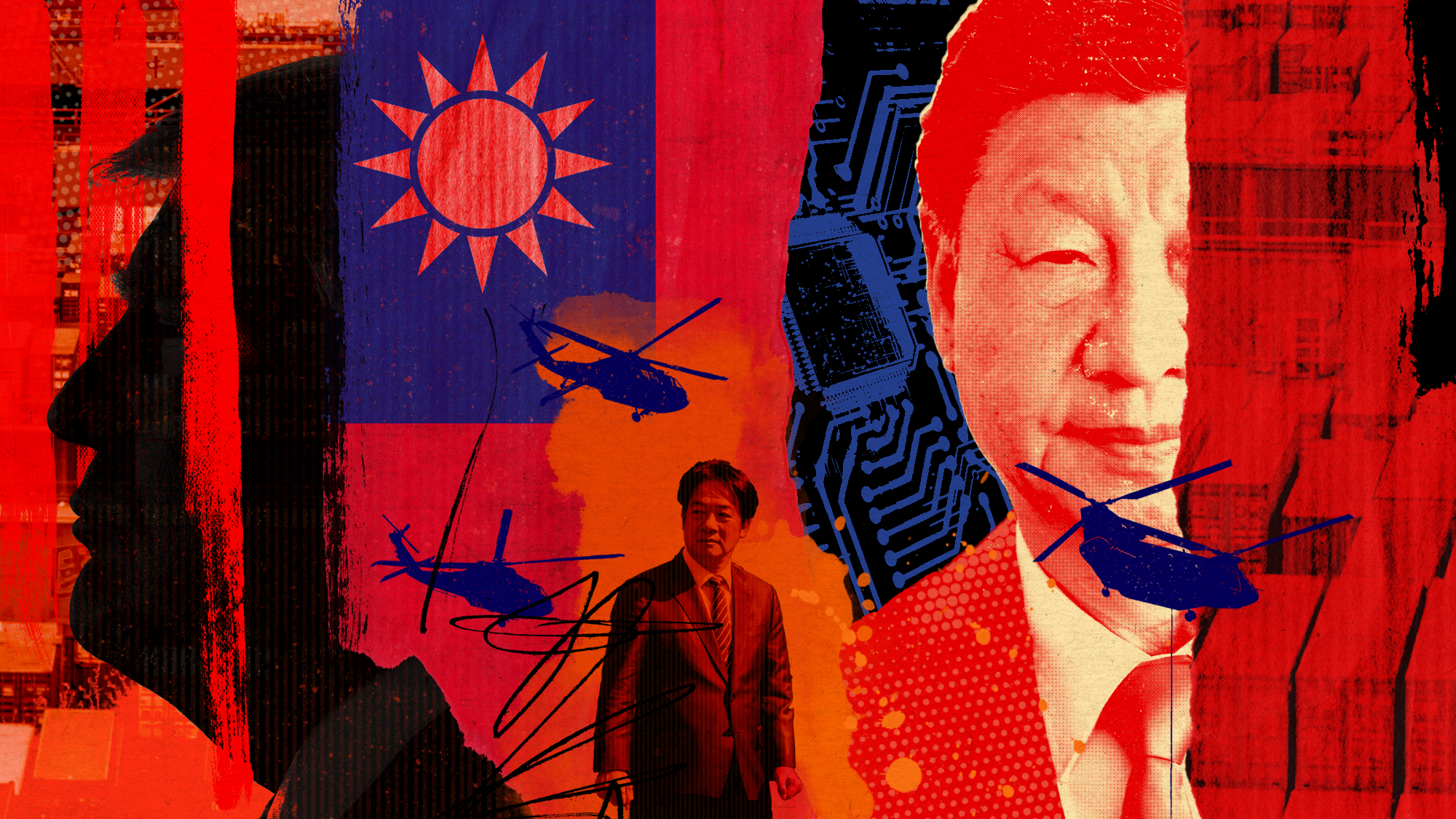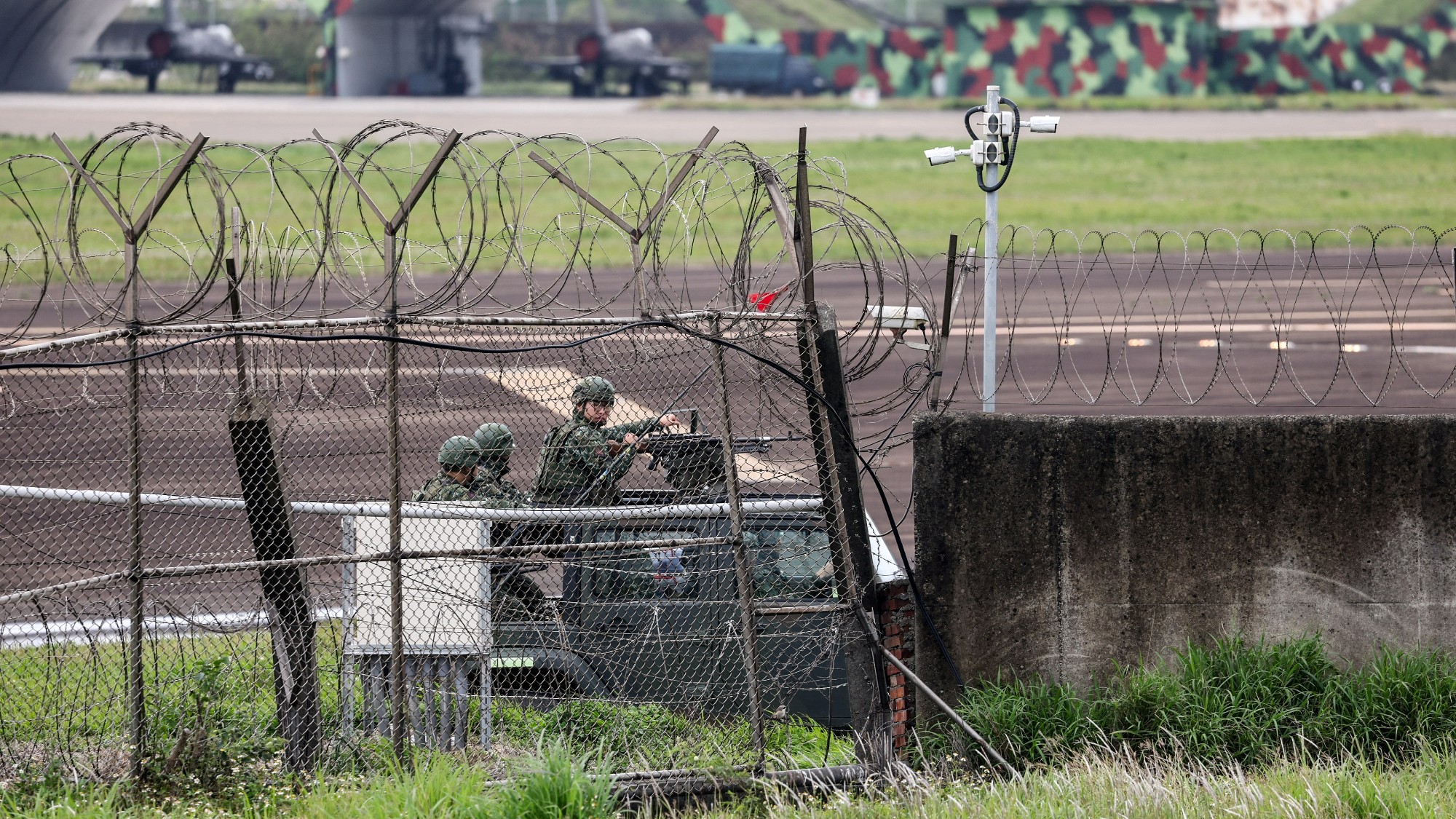Taiwan's tricky balancing act
The island nation, no longer certain of US backing against a hostile China, is quietly looking for other solutions

A free daily email with the biggest news stories of the day – and the best features from TheWeek.com
You are now subscribed
Your newsletter sign-up was successful
The island of Taiwan has long trusted in US support in the face of aggression from China. But, in the "new, unpredictable era" of Donald Trump upending global relationships, Taiwan finds itself looking for new security allies while "trying to keep Trump happy", said NikkeiAsia.
Why is Taiwan worried about US support?
Washington is Taipei's primary arms supplier but their long-maintained "security relationship" has been "less than assured since Donald Trump took office for the second time", said The Guardian.
Watching Trump's "dramatic abandonment of Ukraine" has left many Taiwanese people unsure if they can rely on the US if there is an invasion of Taiwan by China. Both Taiwan and Ukraine "see themselves as being on the front line of defence of democracy, freedom and information warfare" against their "powerful, authoritarian neighbours", said the European Council on Foreign Relations. Trump's public humiliation of Zelenskyy has "cast a shadow of strategic uncertainty" over Taiwan.
The Week
Escape your echo chamber. Get the facts behind the news, plus analysis from multiple perspectives.

Sign up for The Week's Free Newsletters
From our morning news briefing to a weekly Good News Newsletter, get the best of The Week delivered directly to your inbox.
From our morning news briefing to a weekly Good News Newsletter, get the best of The Week delivered directly to your inbox.
The US president has also publicly accused Taiwan of "stealing" America's semiconductor-chip industry – remarks that "suggest he is unlikely to be more amical" towards Taipei, said The Spectator. Indeed, Trump's "Liberation Day" tariff on US imports from Taiwan (ironically, excluding semiconductor chips) was a hefty 32%. That will now fall to 10% with Trump's subsequent tariff rollback but "the confusing signals" from America have left "Taipei wondering where it stands", said The Washington Post.

An armoured vehicle on patrol earlier this month at a military airbase in Hsinchu, a coastal city in north-west Taiwan
What is Taiwan's approach to the US?
Outwardly, the Taiwanese government has projected confidence in its US ally. Its actions, however, look like those of a government trying to shore up vital support. President William Lai Ching-te has committed to raising Taiwan's defence spending to more than 3% of its GDP – a move designed to reassure Trump, who had accused Taipei of not "spending enough on its own defence", said NPR.
Taiwan's giant semiconductor company TSMC has also committed to "boost its US investment by $100 billion" by opening five new "cutting edge fabrication plants" in the US, said The Guardian. Increasing economic dependence on the US in this way "could placate Mr Trump", said The Spectator, but "experience shows that it could just become a way for Trump to exert more pressure in the future".
Where else could Taiwan look for security?
The Taiwanese are "painfully aware" that the US will always put its "own interests first", and that "relying entirely" on America while "rejecting China" is "no longer a viable path forward", wrote former Taiwanese culture minister, Yingtai Lung, in The New York Times. One solution could be to "reconcile with China", in the hope of ensuring the island's "stability and prosperity".
A free daily email with the biggest news stories of the day – and the best features from TheWeek.com
Any rapprochement with China, though, can only come through "mutual respect, equal footing and the guarantee of freedom" and "that is not on the table in Beijing", said John Cheng in the Taipei Times.
While no global power can replace the might of America's backing, Taiwan could look to Europe for greater cooperation. Strengthened EU-Taiwan relations could "help both sides, in their shared interests, to pursue different strategies", said European Council on Foreign Relations. Europe is keen on a greater "technology cooperation" with Taiwan and, in return, it could provide "low-key support to enhance" Taiwan's experience in "information warfare" and in" countering hybrid threats", like undersea cable sabotage and cyberattacks.
Richard Windsor is a freelance writer for The Week Digital. He began his journalism career writing about politics and sport while studying at the University of Southampton. He then worked across various football publications before specialising in cycling for almost nine years, covering major races including the Tour de France and interviewing some of the sport’s top riders. He led Cycling Weekly’s digital platforms as editor for seven of those years, helping to transform the publication into the UK’s largest cycling website. He now works as a freelance writer, editor and consultant.